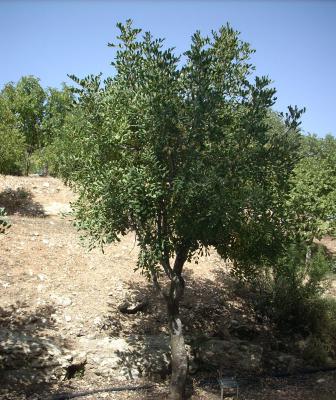Anne-Marie Mingat and her mother, Marthe Lerme, lived in Domène (Isère). Mingat, active in the underground, was the secretary of the Domène municipal council and was responsible for ration cards. One day in late 1942, Zisla Przedborski, a Polish Jewish refugee, entered her office and requested food rations for her husband and daughter. Although she was preoccupied with her work, the twenty-four-year old Mingat responded with warmth and affection. Przedborski felt she could bare her soul and asked whether she would hide her twelve-year-old daughter Félicia. Mingat, who was married and lived with her husband and mother, quickly agreed, although her husband was ill at ease about the prospect of hiding the Jewish girl in their home. Marthe Lerme, Mingat’s mother, joined her daughter in accepting the girl with love and warmth.
To allay the neighbors’ suspicions, Mingat introduced Félicia as a niece who had fled from Paris, provided her with a forged identity card and ration cards, and enrolled her in the local school. Mingat explained to Félicia that, for her own safety, she needed a new identity until the storm passed. Mingat drilled Félicia in Christian prayers, hung a gold cross around her neck, and bought her a Christian prayer book. Mingat, a Catholic, was not devout and did not attend mass regularly. While she hid Félicia in her home, however, to avert the local inhabitants’ suspicions, she attended services on Sundays and festivals together with Félicia. Mingat sustained Félicia’s morale, urged her not to forget her true origin, and assured her that she would eventually be able to return to her roots. Mingat and her mother spared no effort to make Félicia’s stay pleasant; Mingat even bought Félicia a bicycle, although she herself walked all over town searching for food.
Mingat also arranged sanctuary for Félicia’s parents in an abandoned house in Domene, although, for their safety, she did not tell Félicia. Mingat arranged forged identity cards for the Przedborskis, and her comrades in the underground guarded their place of refuge at all times. Mingat never sought a reward for her actions. After the war, Félicia testified that she loved Anne-Marie dearly and had found it very painful to part with her after the liberation: “I did not know with whom I wanted to go, with Mother or with Anne-Marie.” Later Mingat left her husband and moved to another town. The Przedborskis resettled in Israel and after many years of trying to locate her, renewed contact with her.
On April 18, 1982, Yad Vashem recognized Anne-Marie Mingat and Marthe Lerme as Righteous Among the Nations.







